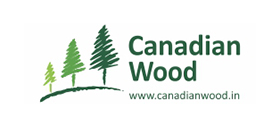Warning: Trying to access array offset on value of type null in /var/www/vhosts/woodnews.in/httpdocs/wiphp/wi_articledetail.php on line 12
Warning: Trying to access array offset on value of type null in /var/www/vhosts/woodnews.in/httpdocs/wiphp/wi_articledetail.php on line 13
Warning: Trying to access array offset on value of type null in /var/www/vhosts/woodnews.in/httpdocs/wiphp/wi_articledetail.php on line 14
Warning: Trying to access array offset on value of type null in /var/www/vhosts/woodnews.in/httpdocs/wiphp/wi_articledetail.php on line 15
Warning: Trying to access array offset on value of type null in /var/www/vhosts/woodnews.in/httpdocs/wiphp/wi_articledetail.php on line 16
Warning: Trying to access array offset on value of type null in /var/www/vhosts/woodnews.in/httpdocs/wiphp/wi_articledetail.php on line 17
Warning: Trying to access array offset on value of type null in /var/www/vhosts/woodnews.in/httpdocs/wiphp/wi_articledetail.php on line 18
Warning: Trying to access array offset on value of type null in /var/www/vhosts/woodnews.in/httpdocs/wiphp/wi_articledetail.php on line 19
Warning: Trying to access array offset on value of type null in /var/www/vhosts/woodnews.in/httpdocs/wiphp/wi_articledetail.php on line 22
Warning: Trying to access array offset on value of type null in /var/www/vhosts/woodnews.in/httpdocs/wiphp/wi_articledetail.php on line 23
No Article Added
Comments

- European symposium highlights formaldehyde emission limits
- Egger adopts holistic approach to waste management
- Weber machines dovetail into best practices
- Hymmen’s smart2i facilitates digitally mapping production
- Understanding paper impregnation
- Rising from the ashes
- Canada’s Western hemlock adorns Indore’s municipal hub
- Hans Weber sets up demo centre in Bengaluru
- More power to woodworkers!
- imos: enhancing furniture sales, production with AI
- Ligna all set to strike gold this May
- ‘For customers, our lab is an open book’
- Anticipation for smart components at Interzum 2025
- Furtech 2025 beckons Indian furniture industry
- HIFF 2025 invites woodworking professionals in September
- CIFF 2025 reimagines global furniture innovation
- Decora makes a mark at Dubai Wood Show
- Understanding PUR glue in membrane press operations
- Machining compact laminates needs precision, durability
- Biesse Customer Care: innovations in support
- Aryamman ushers Staynu tech for furnishings
- Hafele’s RE-Twist raises bar on security
- AWM makes lock, hinge slots easy work
- Biesse’s Akron ensures edge banding excellence
- Hettich sliding systems for precision functions
- Jai’s top-of-the-line wood and panel processing machines
- Schmalz shows benefits of automated handling
- Richwood’s Calibrated Filler is a gamechanger
- Coohom gives wood interiors AR edge
- Taiwan’s Woodworking Machinery Industry Captivates Global Media on Opening Day of LIGNA 2025
- A circular future for fibreboard waste
- ‘Zero ThinPly’ has solid green credentials
- Wood cellulose as air cleaning material?
- Coming of age of sustainability





































